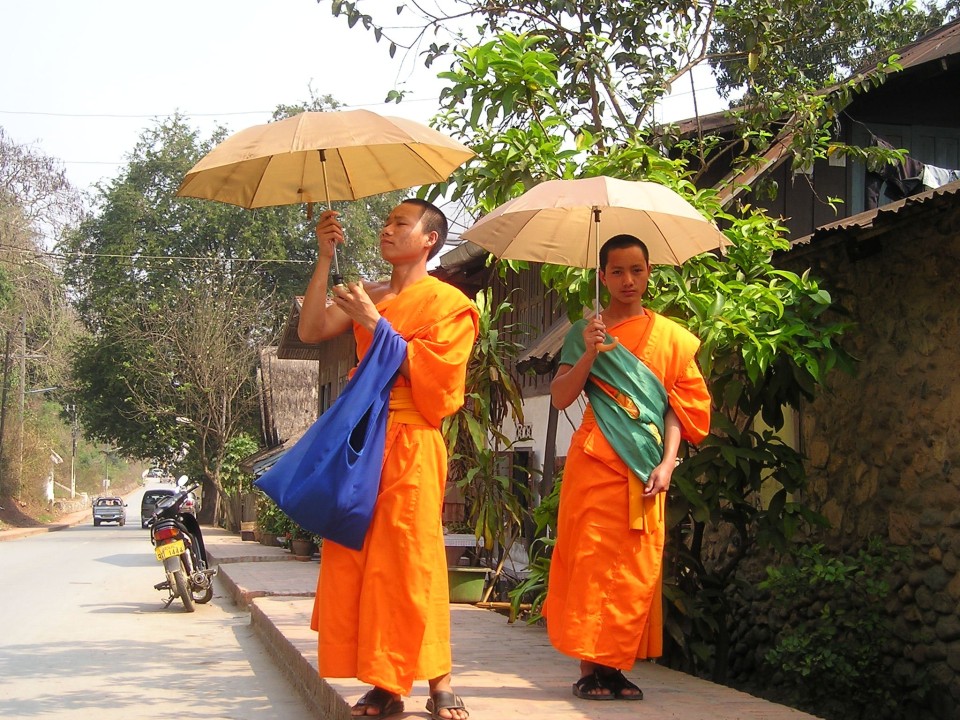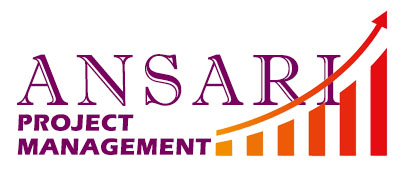1. Why are more and more people in China, Japan, Korea, and other East Asian countries becoming interested in studying Islam and the Holy Quran?
There are several reasons for this growing interest, including curiosity about different cultures, the desire for spiritual fulfillment, the availability of
translated Islamic texts, and increased access to information through the internet.
2. How does studying the Holy Quran benefit individuals from East Asian countries?
Studying the Holy Quran provides individuals with valuable insights into ethics, moral values, and principles that can guide their personal and social lives. It promotes inner peace, mindfulness, and a sense of purpose.
3. What cultural and ethnic similarities exist between East Asian civilizations and Islam?
Both East Asian civilizations and Islam emphasize respect for family values, communal harmony, the importance of education, and a strong work ethic. Both cultures also prioritize hospitality, social cohesion, and the pursuit of knowledge.
4. How does reading the Holy Quran contribute to upgrading individuals' lives in East Asia?
Reading the Holy Quran can provide individuals from East Asia with guidance on various aspects of life, including personal relationships, financial matters, ethical conduct, and maintaining mental and physical well-being. It promotes self-discipline, self-reflection, and personal growth.
5. What problems do local nations in East Asia face that can be addressed through the teachings of Islam and the Holy Quran?
Some common problems in the region include societal pressures, materialism, environmental degradation, and mental health issues. The teachings of Islam and the Holy Quran can provide guidance on addressing these problems through principles of moderation,
sustainable living, compassion, and balanced lifestyles.
6. How can Islam and the Quran aid in finding solutions to social issues in East Asia?
Islam promotes social justice, equality, and the eradication of social vices. The Quran emphasizes the importance of community, charity, and fairness, providing a framework for tackling issues such as income inequality, discrimination, poverty, and social division within East Asian societies.
7. In what ways can studying the Holy Quran address economic challenges in East Asia?
The Holy Quran advocates for fair trade, responsible entrepreneurship, and economic justice. Studying it can promote ethical business practices, sustainable development, and responsible consumption, addressing economic challenges related to greed, corruption, and economic disparities in East Asian societies.
8. How can the teachings of Islam and the Quran contribute to the preservation and promotion of local cultures in East Asia?
Islam recognizes the value of cultural diversity and encourages the preservation of local customs and traditions that do not contradict Islamic principles. By studying the Holy Quran, individuals can develop a balanced approach that integrates Islamic principles with their local
cultural heritage, fostering cultural harmony and continuity.
9. What personal development benefits can individuals from East Asia gain by studying the Holy Quran?
Studying the Holy Quran promotes self-awareness, mindfulness, and personal growth. It can enhance individuals' self-discipline, self-control, and emotional intelligence, empowering them to overcome personal challenges, develop resilience, and find a sense of purpose and contentment.
10. How can the teachings of Islam and the Holy Quran contribute to resolving environmental issues in East Asia?
The Quran emphasizes the concept of stewardship, urging believers to take care of the Earth and its resources. By following its teachings, individuals in East
Asia can adopt sustainable lifestyles, engage in environmental conservation efforts, and address issues such as pollution, deforestation, and climate change.

By studying the Holy Quran, individuals can gain a deeper understanding of Islamic principles and values
11. What role can Islam and the Quran play in bridging cultural and religious divides in East Asia?
Islam promotes interfaith dialogue, tolerance, and respect for diverse beliefs. By studying the Holy Quran, individuals can gain a deeper understanding of Islamic principles and values, fostering empathy and cooperation with people from different cultural and religious backgrounds in East Asia.
12. How can the teachings of Islam and the Holy Quran contribute to mental health and well-being in East Asia?
The Quran provides guidance on managing stress, anxiety, and maintaining
a healthy mindset. Its teachings promote forgiveness, gratitude, and inner peace, which can be beneficial in addressing mental health issues prevalent in East Asian societies, such as burnout, depression, and social pressure.
13. How can studying the Holy Quran contribute to promoting gender equality in East Asia?
The Quran promotes gender equity and justice, highlighting the importance of women's rights and their equal participation in society. By studying the Holy Quran, individuals from East Asia can challenge patriarchal norms, advocate for gender equality, and work towards creating inclusive and empowering communities.
14. How can Islam and the Quran contribute to fostering a sense of community and social cohesion in East Asian societies?
Islam places a strong emphasis on community and encourages Muslims to support and care for one another. By studying the Holy Quran, individuals from East Asia can learn the importance of social solidarity, community engagement, and mutual cooperation, which can help address issues of social isolation, loneliness, and disconnection.
15. How can the teachings of Islam and the Holy Quran contribute to combating corruption in East Asia?
The Quran provides clear guidelines against corruption, bribery, and dishonesty in both personal and public life. By
studying the Holy Quran, individuals in East Asia can promote integrity, ethical conduct, and transparency, helping to combat systemic corruption and develop more accountable institutions.
16. How can the principles of Islam and the Holy Quran contribute to resolving conflicts in East Asia?
Islam promotes peace, forgiveness, and reconciliation. Studying the Holy Quran can provide individuals in East Asia with conflict-resolution strategies that emphasize dialogue, negotiation, and compromise, helping to address social, political, and ethnic tensions in the region.
17. How can studying the Holy Quran contribute to promoting ethical governance and leadership in East Asian countries?
The Quran provides a framework for ethical governance and leadership, emphasizing justice, accountability, and serving the common good. By studying the Holy Quran, individuals in East Asia can develop leadership qualities that prioritize integrity, transparency, and responsible decision-making, addressing issues of corruption, nepotism, and authoritarianism.
18. How can Islam and the Holy Quran contribute to promoting education and intellectual development in East Asia?
Islam places a strong emphasis on intellectual pursuits and the acquisition of knowledge. Studying the Holy Quran can inspire individuals in East Asia
to value education, critical thinking, and lifelong learning, contributing to intellectual development, innovation, and progress in various fields.
19. How can Islamic teachings and the Holy Quran contribute to addressing social inequalities in East Asia?
The Quran promotes social justice, compassion, and equality. By studying the Holy Quran, individuals in East Asia can gain insights into addressing issues such as income inequality, discrimination, and marginalization, fostering a more inclusive and egalitarian society.
20. How can the teachings of Islam and the Holy Quran contribute to promoting religious tolerance in East Asia?
Islam encourages respect for diverse religious beliefs and advocates for religious freedom. Studying the Holy Quran can promote interfaith understanding, religious tolerance, and
peaceful coexistence among different religious communities in East Asia.

By studying the Holy Quran, individuals in East Asia can develop a sense of responsibility
21. How can Islamic teachings and the Holy Quran contribute to promoting responsible media practices in East Asia?
Islam emphasizes the importance of truthfulness, responsible speech, and avoiding the spread of misinformation. By studying the Holy Quran, individuals in East Asia can develop media literacy, promote ethical journalism, and combat the propagation of harmful narratives and stereotypes.
22. How can the teachings of Islam and the Holy Quran contribute to addressing the aging populations and elderly care challenges in East Asia?
The Quran emphasizes respect for elders and advocates for their proper care.
By studying the Holy Quran, individuals in East Asia can develop a sense of responsibility towards their elderly population, fostering a compassionate society that addresses the challenges of aging, caregiving, and elder abuse.
23. How can Islam and the Holy Quran contribute to promoting peaceful family dynamics in East Asia?
The Quran provides guidance on maintaining harmonious family relationships based on love, respect, and justice. Studying the Holy Quran can equip individuals in East Asia with principles that promote healthy communication, gender equity, and positive parenting techniques, helping to address issues such as domestic violence, generational conflicts, and strained family ties.
24. How can the teachings of Islam and the Holy Quran contribute to addressing mental health stigma in East Asia?
Islam encourages empathy, compassion, and support for individuals facing mental health challenges. By studying the Holy Quran, individuals in East Asia can gain a better understanding of
mental health issues, challenge stigma, and promote inclusive societies that prioritize mental well-being.
25. How can studying the Holy Quran contribute to promoting sustainable agriculture and food security in East Asia?
The Quran emphasizes the importance of responsible agriculture, water conservation, and sustainable food production. By studying the Holy Quran, individuals in East Asia can be inspired to adopt environmentally-friendly farming practices, reduce food waste, and address pressing issues related to food security and sustainable development.
26. How can the teachings of Islam and the Holy Quran contribute to promoting responsible tourism and cultural preservation in East Asia?
Islam emphasizes the importance of respecting local customs, preserving natural environments, and promoting sustainable tourism. By studying the Holy Quran, individuals in East Asia can foster cultural appreciation, advocate for
responsible travel practices, and contribute to the preservation of local heritage and ecosystems.
27. How can Islamic teachings and the Holy Quran contribute to promoting volunteerism and community service in East Asia?
Islam encourages acts of charity, compassion, and community service. Studying the Holy Quran can inspire individuals in East Asia to participate in voluntary initiatives, contribute to social welfare programs, and address various societal needs, fostering a sense of social responsibility and collective well-being.
28. How can the teachings of Islam and the Holy Quran contribute to addressing substance abuse and addiction in East Asia?
The Quran provides guidance on self-discipline, moderation, and avoiding harmful substances. Studying the Holy Quran can help individuals in East Asia develop resilience, find alternative coping mechanisms, and challenge societal norms that contribute to substance abuse, addiction, and related issues.
29. How can Islam and the Holy Quran contribute to promoting personal financial management and addressing debt issues in East Asia?
The Quran promotes responsible financial practices, avoiding usury, and prudent spending.
Studying the Holy Quran can help individuals in East Asia develop financial literacy, practice moderation, and manage debt responsibly, addressing issues of excessive consumerism, financial stress, and economic instability.
30. How can the teachings of Islam and the Holy Quran contribute to promoting continuous learning and innovation in East Asia?
Islam encourages individuals to seek knowledge, explore the world, and continuously improve themselves. Studying the Holy Quran can inspire individuals in East Asia to
embrace lifelong learning, encourage innovation, and contribute to advancements in various fields, fostering a culture of intellectual curiosity and progress.
Dear Visitor; Please take a look at the list of 50 most visited websites in the world wide web: YouTube, Facebook, google, translate, gmail, weather, amazon, Instagram, cricbuzz, Hotmail, wordle, satta king, twitter, yahoo, yandex, sarkari result, Netflix, google maps, yahoo mail, roblox, whatsapp, NBA, BBC news, outlook, pinterest, flipkart, eBay, omegle, live score, tiktok, canva, ipl, premier league, hava durumu, ibomma, walmart, twitch, ikea, shein, linkedin, home depot, e devlet, lottery, snaptik, cricket, serie a, nfl, spotify, fox news, amazon prime; There is no book publishing related or project management website in this list. We are working hard to bring these important issues to the center of concentration of societies. Please introduce us via social media, share our website with others and help us to make our world a better place to live. Best Regards.













Write your review